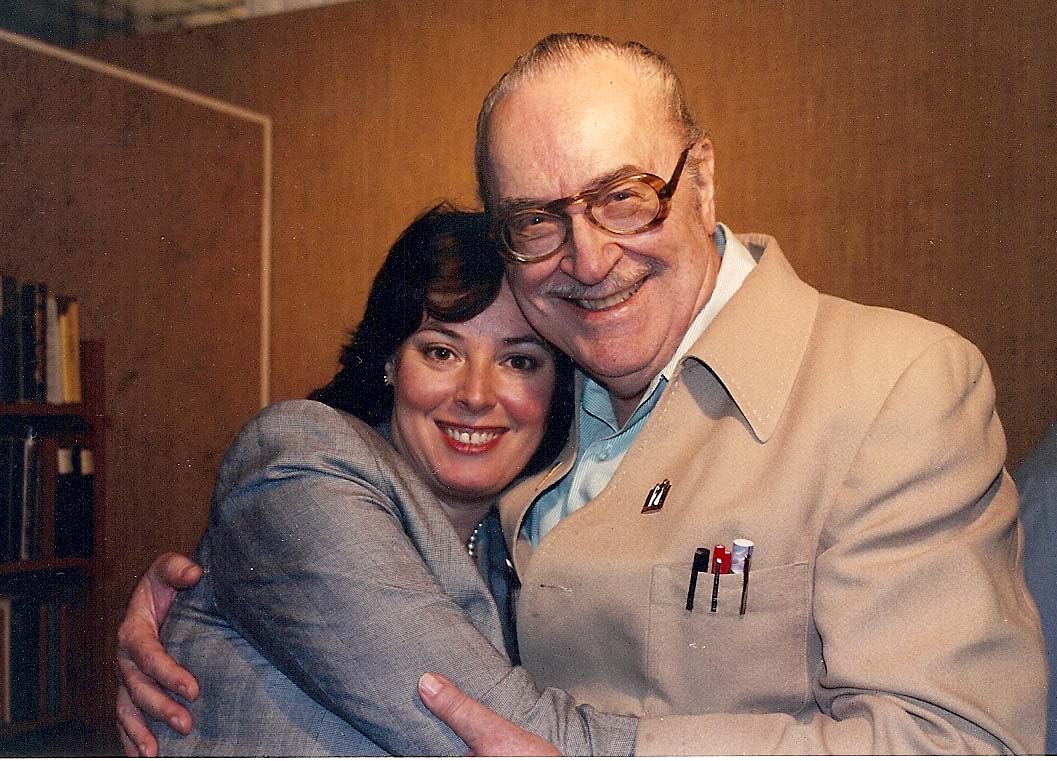|
|||||||||||||||||
|
Mondo Cult
Forum
Blog
News
Mondo Girl
Letters
Photo Galleries
Archives
Back Issues
Books
Contact Us
Features
Film
Index
Interviews
Legal
Links
Music
Staff
|
Editor's NoteBefore we get into the meat of this article, I want to note that it originally appeared in Worldly Remains #6 in 2002. The review of this book was written by Brad Linaweaver, who was a witness for the prosecution in the Forrest J Ackerman / Ray Ferry trademark and copyright law suit. There are many reasons for reprinting this here and now, but all parties involved, Brad, Worldly Remains then Editor-In-Chief Ron Garmon and myself (then publisher of Worldly Remains) all feel it's best to get it back up here in light of current events regarding Mr. Ferry and his version of Famous Monsters of Filmland. — Jessie LilleyLife Is But A Scream:The True Story of the Rebirth of Famous Monsters of FilmlandRay Ferry
This is no ordinary book review because Ray Ferry's Life Is But A Scream is no ordinary book. The former (finally!) publisher of the revived Famous Monsters of Film/and has written the ultimate press release at great expense to answer a multitude of internet posts produced at much less expense. Ferry's critics didn't always have the complete facts, but knew enough to be enraged at what occurred between Ferry and Forrest J Ackerman over the rebirth of the original monster film magazine. As for Ferry, he never allowed the facts to get in the way of his magnum opus.  L-R: Forrest J Ackerman, Brad Linaweaver and Ray Bradbury Another way of looking at this unique spawn of Karmanirhara Publications (which of course no one's ever heard of before or since) is that it is Ferry's very personal editorial in which he complains about the very personal editorial style of FJA, the subject of his ire. This review follows the same pattern of personal journalism because the reviewer played a role in the court case that decided the fate of FM and Dynacomm. In other words, the facts I know best are the ones with which I was involved and about which I testified.  Worldly Remains Editor-In-Chief Ron Garmon The short version of the truth is that Ray Ferry lost his court case in 2000. The jury found in favor of Forry Ackerman on every count, including a hefty financial award. At issue were both intellectual property and money. In victory, Forry learned that it is easier to collect on what you already have (the product of your mind) than money in someone else's bank account. The other thing that Forry learned was more grim than a visit to Castle Frankenstein. In a genre of magazine publishing that he invented, only a few publishers and editors gave a public damn when the godfather of the form was in trouble. The majority should be ashamed of themselves. The long version of untruth is not just to read but actually scrutinize the chatty and sometimes entertaining Life Is But A Scream (that's how I found out that Ferry and I became fans from the same event, a childhood viewing of The 7th Voyage of Sinbad [58]). Ferry is the master of belaboring true events and then omitting minor details that would provide a complete picture. But he also practices the art of the fantasist when necessary. Here I'll summarize my part in this nasty business. Quoth the Ferry: "Brad Linaweaver (a writer whose total contributions had consisted of two articles, two news blurbs and a fan letter to FM during the course of Ackerman's l0-issue tenure with me) was called to the stand." The reader may wonder how there can be anything wrong with that statement. Bear with me. Right before what appears to be trial transcript, Ferry writes, "Part of the exchange went more or less like this." Then follows what to the cursory reader seem to be direct quotes from the trial about my seeing Forry writing a response to a fan for the letters column in FM.  Jessie Lilley and Forrest J Ackerman Regarding the matter of Ferry writing letters for the Fang Mail department, Ferry says I contradicted myself and "poor Brad reminded me of Ralph Kramden (from "The Honeymooners" TV show) when that character couldn't come up with a good response after having been caught telling a tall tale." I admit I laughed when I read that. But I didn't laugh over the idea that I was trapped by Ferry's lawyer when I assumed (from seeing FJA write a letter to a fan) that he had written more letters as well! I caught the lawyer in his own contradiction when I pointed out that on the one hand Ferry was saying he wrote all those letters because FJA wasn’t doing the a work, but on the other hand Ferry wrote the letters because FJA turned in work that was inadequate. When I asked which it was (no work or bad work) the lawyer told me he had no more questions. It felt like being on an episode of "Perry Mason."  Jessie Lilley and Ray Bradbury There is a simple rule of thumb for reading this book. When he says bad things about Jessie or Ron Borst or Joe Moe or Bill Warren or Lee Harris, just dismiss it. Of course he's going to say bad things about the attorney who cleaned his clock, J.C. Applebaum. As for his bad words about James Warren, the first publisher of FM, they are probably true. But when he says good things about various celebrities, that shouldn't be held against them! Sure, it's an honor to be attacked in his book, but not everyone mentioned is so fortunate. Celebrities treat all PR as pretty much the same, and Ferry's FM kept going long after it should have folded. A unique category is reserved for Brinke Stevens. Ferry starts out by saying mean things about her, but ends up paying a back-handed compliment to her professionalism. Maybe she scared him! The tragedy is that some of Forry's friends continued to write and perform editorial functions for the magazine after the split. How they could have done this is a mystery. There were other places they could have gone. There have never been more of these magazines in history. Hell, they could have joined Forry and me when we worked with Buddy Barnett and Michael Copner to do special double issues of Cult Movies with the return of Spacemen, Forry's other famous filmzine. At the very least, they could have given Forry kind word on his new projects. — Brad Linaweaver |
||||||||||||||||



